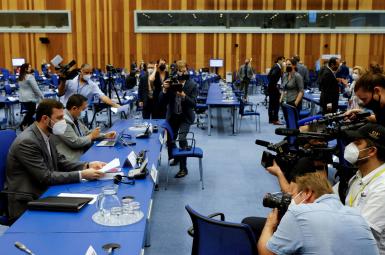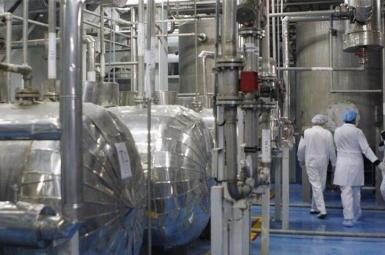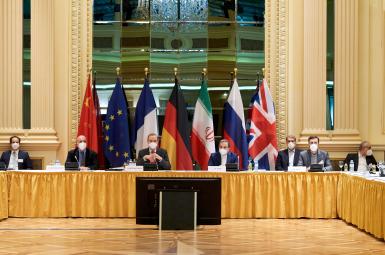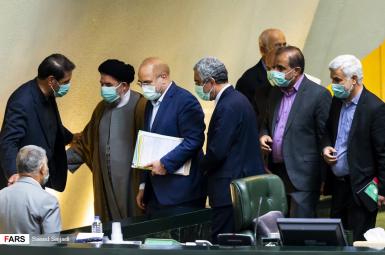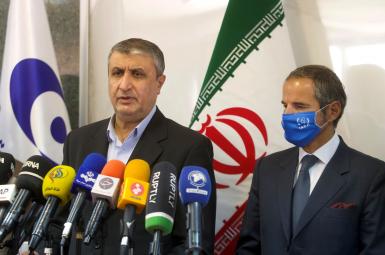
Iran Stopped IAEA Monitoring Cameras Installed After 2015 Deal
Mohammad Eslami, head of the Atomic Energy Organization of Iran, said Wednesday that Iran had "deemed it unnecessary to maintain" cameras installed by the International Atomic Energy Agency (IAEA) in nuclear sites following the 2015 nuclear deal, the Joint Comprehensive Plan of Action (JCPOA), after other parties to the agreement had abandoned their commitments.
Eslami met with lawmakers to explain why it was necessary to maintain relations with the IAEA, while the hardliner dominated parliament has been demanding since December to substantially curtail the UN agency's access to Iran's nuclear sites. But the reaction of hardliners has been muted to the decisions and actions of President Ebrahim Raisi's government which is exclusively made of like-minded principlists and hardliners.
Eslami who was speaking to reporters on the sidelines of a meeting with the parliament's National Security and Foreign Policy Committee told reporters that apart from the commitments that should be honored under the safeguards agreements, Iran had installed a number of other cameras at its nuclear sites in accordance with the JCPOA. Eslami added that some of these cameras had been damaged "during a terrorist incident,” possibly a reference to the April 11 attack on the Natanz facility widely attributed to Israel.
The IAEA reported earlier this month damage to its cameras in a facility in Karaj in a drone attack also attributed to Israel.
"[The damage to cameras] caused two very harsh and destructive [IAEA] reports," Eslami noted. He said the issue had been discussed with IAEA chief Rafael Mariano Grossi on his visit Sunday to Iran. Eslami said he would attend the 65th annual IAEA conference in Vienna September 20-24.
However, Eslami is under EU sanctions. In 2008, Eslami was slapped with UN and EU sanctions for having “engaged in, directly associated with or providing support for Iran’s proliferation sensitive nuclear activities or for the development of nuclear weapon delivery systems.” Under the Iran nuclear deal, Eslami’s EU sanctions are scheduled to be lifted by October 2023.
Grossi had penned two reports – one saying the agency was facing challenges in its monitoring tasks and one saying Tehran had failed to provide adequate explanations of traces of uranium found in undeclared nuclear sites before 2003.
Iran agreed with Grossi Sunday to the agency replacing memory cards in the cameras and servicing them. The IAEA will not have access to the footage unless agreement is reached in Iran’s talks in Vienna with world powers over reviving the JCPOA. The talks have been suspended since April with the presidential transition in Tehran.
This agreement with Grossi extended a temporary arrangement reached in February, and lowered the temperature for the IAEA general meeting, given there had been speculation the US might raise a resolution critical of Iran.
The February arrangement followed a decision by the Iranian parliament in early December, following the killing of an Iranian nuclear scientist widely blamed on Israel, to reduce IAEA monitoring to the level required by the Nuclear Non-Proliferation treaty (NPT). The agency had exercised greater access both under the JCPOA and Iran’s Additional Protocol to the NPT.
The arrangement allowed the IAEA to keep certain cameras in place without having immediate access to footage, with Iran retaining the option of destroying the footage once the agreement expired.

